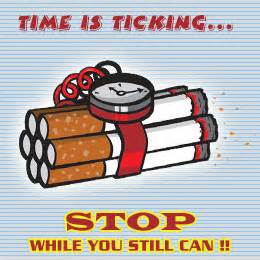I received this through my email which you may find interesting reading.
Warnings
that cough
could spell
cancer
VITAL SIGNS: IT’S THE MOST LETHAL
CANCER, BUT LUNG CANCER CAN
BE CURED IF IT’S PICKED UP EARLY
ENOUGH. KATIE BALDWIN REPORTS.
AS WINTER
sets in, it’s the
time for colds
and coughs to
do the rounds.
Often it’s those
coughs which outlast the
other symptoms of viruses,
sometimes hanging around for
weeks afterwards.
But Macmillan Cancer
Support, along with the NHS,
are urging people to watch out
for persistent coughs.
A cough lasting more than
three weeks can be one of the
symptoms of lung cancer,
and during November – Lung
Cancer Awareness Month –
specialists are trying to make
more people aware of the signs.
John White, lead macmillan
lung cancer nurse specialist
based at the Leeds Cancer
Centre at St James’s Hospital
said: “Nearly 120 people receive
a diagnosis of lung cancer every
day in the UK, and whilst the
survival rates are poor, the
important thing to remember
is that if caught early enough it
is treatable.”
He said that 77 per cent
of lung cancer patients were
unaware of the signs and
symptoms, which that means
many are being diagnosed too
late to be cured.
“It’s really vital that more
people are educated – getting
people to their GP’s when
symptoms occur could mean
earlier diagnosis and a better
prognosis.”
And though one of the
major risk factors for the
illness is smoking, it can also
affect non-smokers.
“There is also a
misconception that lung cancer
only affects smokers but this
isn’t the case – in fact more
than one in ten cases are not
linked to smoking at all,” John
added.
“It’s important for everyone
to know the facts.”
A Leeds pensioner knows
just how important it is to get
checked out if anything seems
to be wrong.
Ray Whincup was 60 in 1998
and was very fit, going to the
gym very regularly after taking
redundancy from his job as
a bank inspector eight years
earlier.
However he had noticed
he was coughing up a small
amount of blood, and the cough
itself was lingering.
The father-of-two, who lives
in Rothwell with his wife Hazel,
visited his GP, underwent tests
and then was given the news
that he had lung cancer.
He underwent surgery in
Leeds to have a lung removed,
an operation which may have
saved his life.
Ray, now 77, said: “Lung
cancer doesn’t necessarily
mean the end – I’m living proof
of that because it’s now 16 years
since I was diagnosed. I had
my right lung removed in 1998
and I haven’t looked back – life
is just at a slower pace than it
used to be.
“My advice to anyone who
thinks they have any signs or
symptoms of lung cancer is to
just go straight to your GP and
get yourself checked out.”
Since his surgery, he has
become closely involved
with a group helping other
patients, Leeds Lung Cancer
and Mesothelioma Patient
Support.
Ray added: “When people
are diagnosed with lung cancer,
they can be quite traumatised
because they think they are
going to die. Having the support
of others goes a long way to
help get through it.”
He says that if he had
ignored the blood he spotted,
he may well not have survived.
In Leeds, about 500 people
a year are diagnosed with lung
cancer amd it is believed that
in general, three-quarters of
patients are not diagnosed
until the disease is already in
the advanced stages and much
harder to treat. Many don’t
live for more than a year after
receiving their diagnosis.
Dr Mat Callister, consultant
respiratory physician from
Leeds Teaching Hospitals, said:
“Lung cancer is one of the most
common and serious types of
cancer in the UK. This is why
it’s hugely important for people
to be aware of the symptoms
and that they visit their GP as
soon as they notice something
is wrong.
“Like all cancers early
diagnosis is vital and improves
the chance of survival
significantly. When lung cancer
is diagnosed in its early stages,
there are more treatment
options and treatment is likely
to be more successful.”
● Over 50s living in Leeds who
have had any of the symptoms
of lung cancer can attend a free
walk-in screening service at
Seacroft Hospital or St George’s
Centre in Middleton without an
appointment.
Anyone aged under 50 who
has had a cough for more than
three weeks should speak to
their GP or call NHS 111.
SIGNS TO
WATCH FOR
● a continuing cough, or
change in a long-standing
cough, or pain when coughing
● becoming breathless and
wheezy
● coughing up bloodstained
phlegm
● chest or shoulder pain
● a chest infection that
doesn’t get better
● difficulty swallowing
● feeling extremely tired and
lethargic or weight loss
● the ends of fingers
becoming larger or looking
more rounded
● swelling of lymph nodes in
the neck area
“Lung cancer
doesn’t
necessarily mean
the end.”
